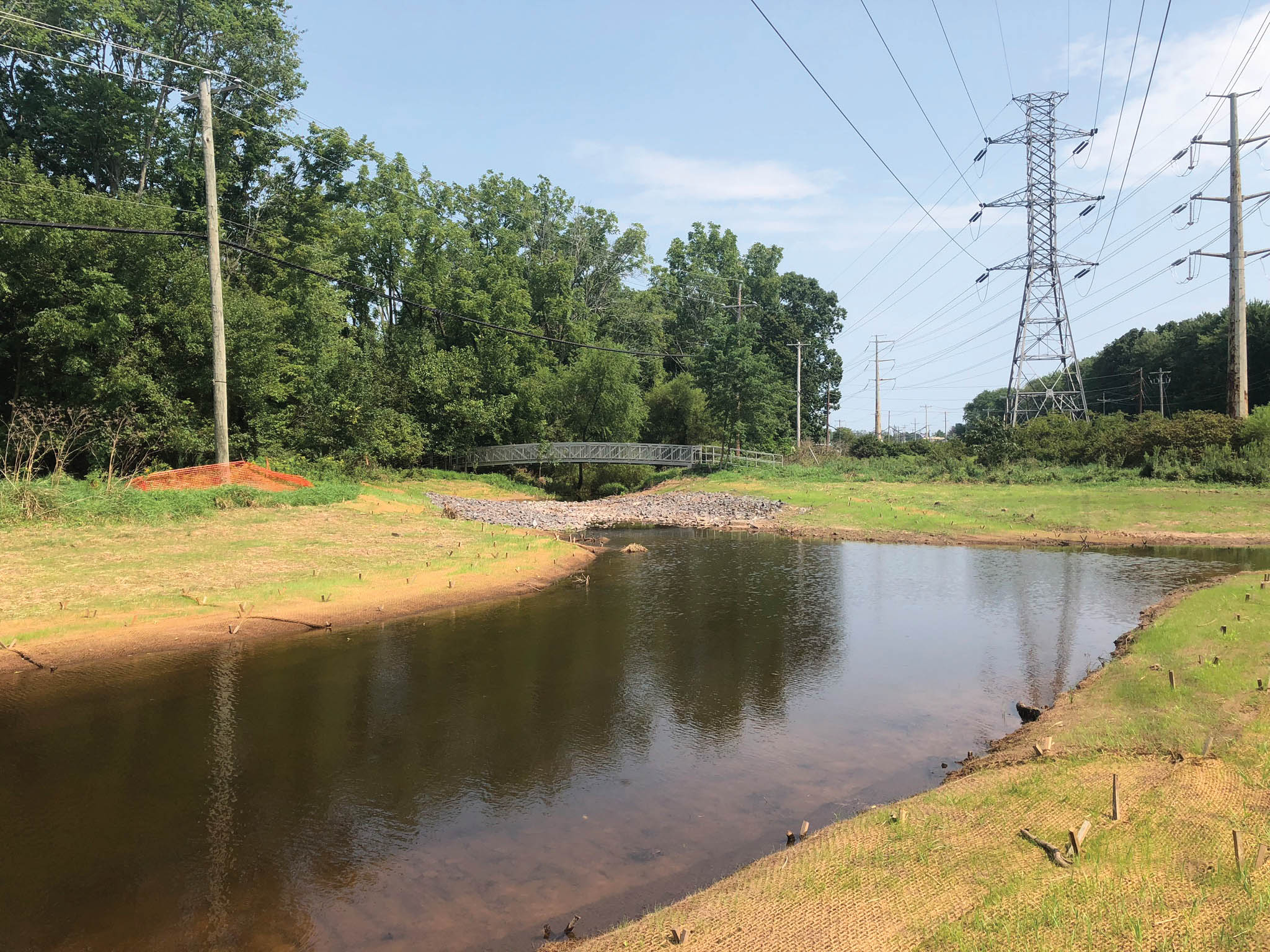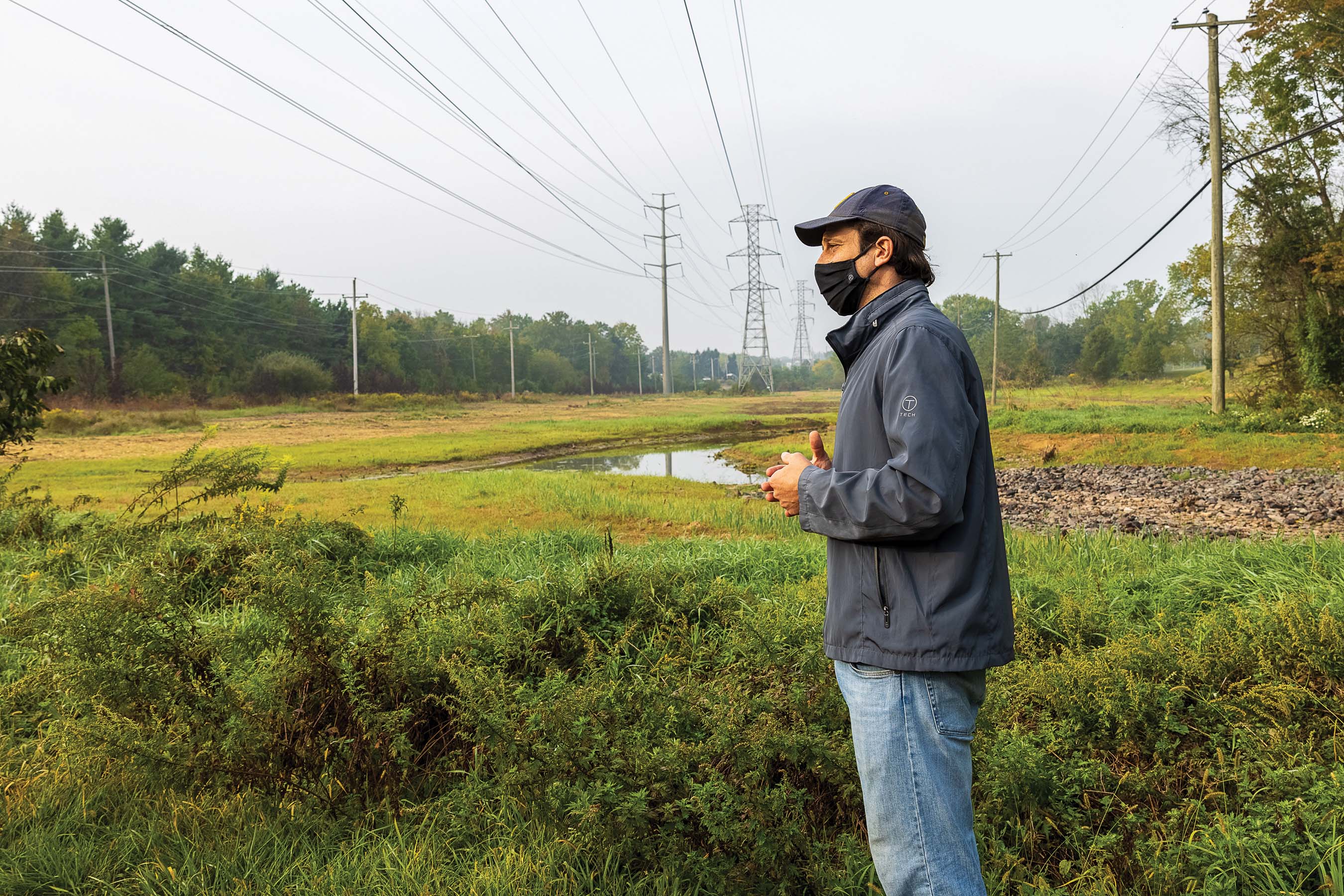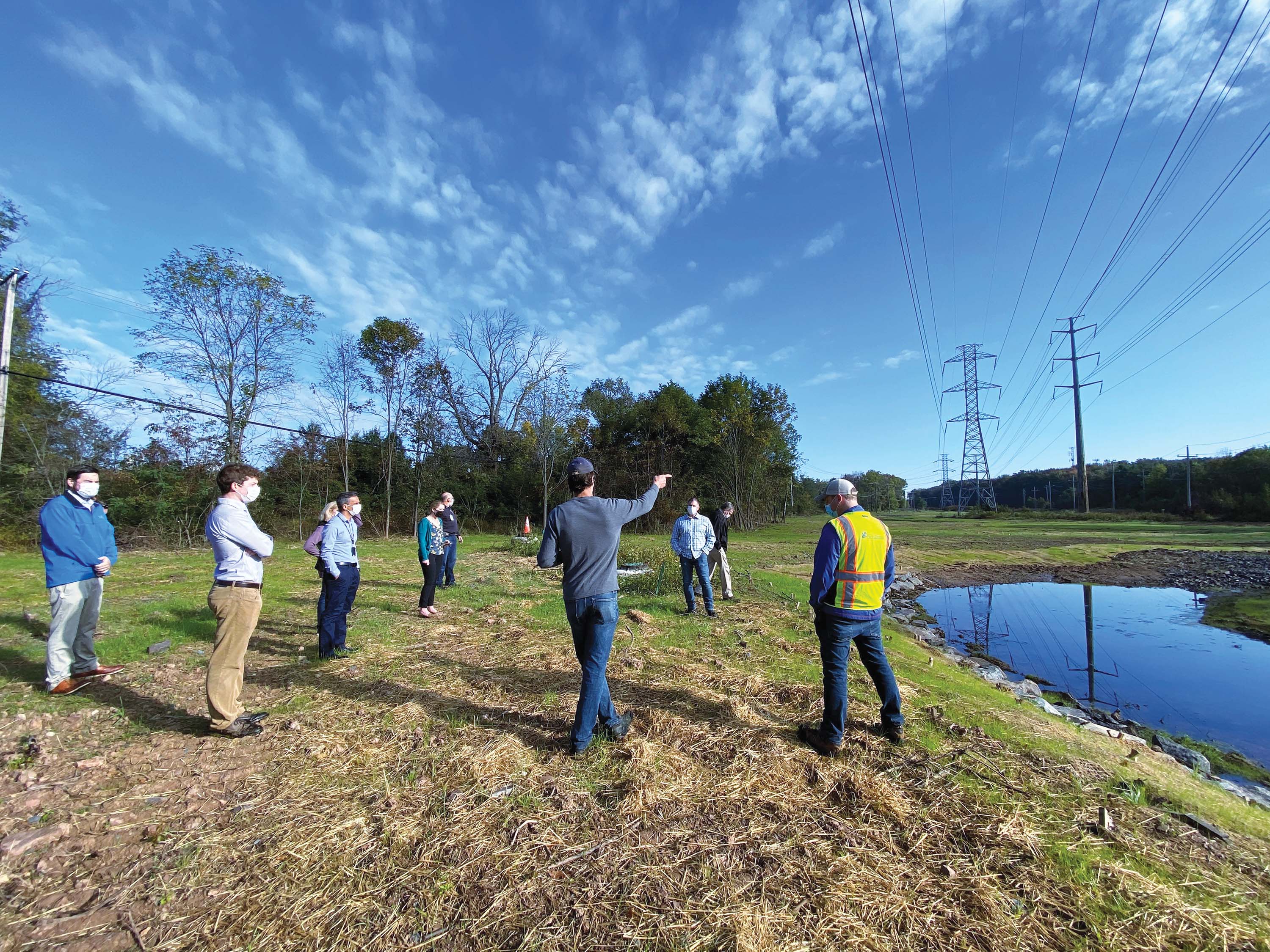
Combining Public and Private Efforts to Improve Water Quality
After more than five years of planning, the $1.4 million Wissahickon Headwaters Stream and Riparian Restoration Project in Upper Gwynedd Township has been completed. This project restored and stabilized the stream channel and reconnected it with its floodplain along 1,775 linear feet of the Wissahickon Creek in the PECO right-of-way power line corridor.
Funding and support for this project was made possible through public and private partnerships, with Wissahickon Trails leading the effort. Partners include Merck & Co., Inc., Upper Gwynedd Township, the Pennsylvania Department of Environmental Protection, PECO, the William Penn Foundation the National Fish and Wildlife Foundation.
The close collaboration of local stakeholders such as Merck, Upper Gwynedd, and PECO, backed by additional state, federal, and private dollars, is a really important aspect of this project. This kind of public/private partnership is necessary when addressing complex environmental challenges, such as stormwater. In the Wissahickon, there are local public and private partners who are committed to being part of the solution.
Working with PECO on the project, as well as Merck and Upper Gwynedd Township, Wissahickon Trails was able to turn this property along a highly eroded stretch of the creek into an actual floodplain, which will slow down the force of the water and allow it to percolate into the ground instead of flowing downstream. Flood tolerant plantings will be installed, which over time will look like and work as a functioning ecosystem.
“At Merck, we have a responsibility to use resources wisely and drive innovations that will enable development while protecting and preserving the communities in which we live and work,” said Nancy Bednarik, director of Global Facilities Management. “We were happy to contribute to the funding for the project as part of our partnership with the township, and we continue to support Wissahickon Trails through our Neighbor of Choice grant program.”
A well-functioning watershed captures, stores, and slowly releases rainfall (and snowmelt) into a body of water, such as a creek, stream, or river. Increased rain events caused by climate change and continuous development within the Wissahickon watershed have exponentially increased surface runoff and overland flow. This increased flow we see during and after storm events erodes the streambanks throughout the watershed, adding sediment and pollution, and ultimately degrading the habitat and water quality of the Wissahickon Creek and its tributaries.
Despite being a vital natural resource and a Pennsylvania Department of Environmental Protection priority watershed in the region, the Wissahickon Creek has been classified as an impaired stream on the Integrated List of all Waters since 1996 due to excessive nutrients and sediment. Wissahickon Trails and our partners are committed to addressing the impaired status of the Wissahickon Creek and investing time and resources into capital projects to create a healthier creek for the people, plants and wildlife that call it home. Sustainability projects such as the one completed this fall will reduce erosion, improve water quality and provide habitat for many years to come.
According to Liz McNaney, Upper Gwynedd Board of Commissioners president, the township is proud to be a member of the public-private partnership that includes a diverse group of stakeholders.
“This project is a part of our plans to meet regulatory requirements for water quality in the Wissahickon Creek and we are very happy with the positive impact that it will have on our waterways,” she said. “The project will reduce sedimentation, restore connection with the stream and the floodplain and improve the capacity of the floodplain. Wissahickon Trails structured the project to include native plants and wetland plantings. All together, this results in a project that is good for the environment and good for our town.”
Folks can visit the project site at the start of the Green Ribbon Trail at Parkside Place in North Wales, where the trail changes from paved to unpaved.






